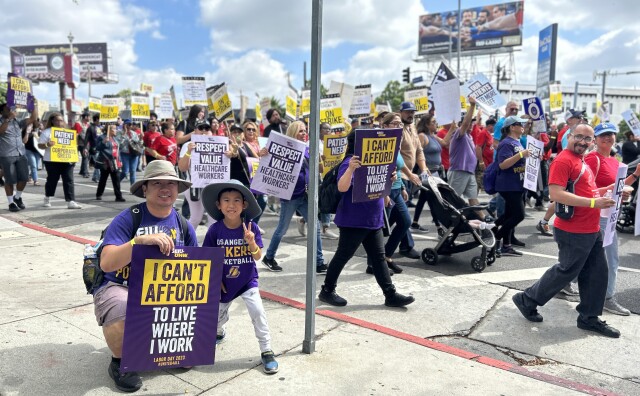The Los Angeles County Department of Public Health is reporting an extremely rare situation.
A Baldwin Park resident has been diagnosed with dengue after catching it locally, the department announced on Monday. Dengue is a disease caused by a virus that spreads mainly through mosquito bites.
While a very low amount of L.A. County residents catch dengue through travel yearly, this is the first time the L.A. County Department of Public Health has reported a locally-acquired case.
That means there are likely infected mosquitoes in the county.
What is dengue?
Dengue is common in tropical and subtropical regions, like the Caribbean, Central and South America, Southeast Asia, and the Pacific islands.
This is California’s third locally-acquired dengue case. Two others were reported in Long Beach and Pasadena in fall 2023. Those cities have their own public health departments.
Locally-acquired means the person had no history of travel to areas where the disease is endemic.
The risk of it spreading in L.A. County remains low, but the announcement comes at a time when dengue cases have been rising globally. The 2024 calendar year has had the highest number of cases on record, according to a recent health advisory.
More than 11 million cases of dengue have been reported in North, Central, and South America and the Caribbean in 2024, according to the CDC.
Dengue is primarily passed on to people through the bite of infected Aedes mosquitoes, which are invasive to California.
Dengue can cause a range of flu-like symptoms. Those include fevers, headaches, pain behind the eyes, joint and muscle pain, rash, and even mild bleeding. About 1 in 20 cases develop serious disease symptoms, which could be life-threatening. But for most, symptoms usually last from a few days to a week.
What’s being done
The county Department of Public Health is working with vector control districts on prevention. The department said field teams are going door-to-door with information on dengue risk and mosquito bites nearby.
“This case further indicates that dengue fever is present in our community... ,” said Muntu Davis, L.A. County health officer, in a statement. “We must remain vigilant and prevent further cases through public education and mosquito control efforts.”
San Gabriel Valley’s vector control district is also increasing mosquito trapping to allow for more testing and to reduce the risk of additional spread in the Baldwin Park neighborhood.
How you can protect yourself
Because dengue is spread through mosquitoes, avoiding bites is the best way to protect yourself.
Aedes mosquitoes prefer to breed in small spaces, like containers and even bottle caps. And they are known as ankle biters that can be active during the day and in well-lit areas at night.
- Clear water and gaps
You’ll want to make sure to clear standing water around your home. A lot of the water sources that mosquitoes thrive off of are generated by us — think a dripping spigot, or water left outside for your pets. Clogged rain gutters, drying out buckets, and even fresh water in bird baths can become a breeding ground.
Give your home a check for gaps that mosquitoes can get through, like a broken window screen. The Greater L.A. County Vector Control District has a checklist that you can use to check your property.
- Use insect repellent
You’ll want to look for ones with specific active ingredients such as DEET, picaridin, oil of lemon eucalyptus, IR3535, and 2-undecanone.
- Call in the experts
If the mosquitoes where you live won’t take the hint, call your local vector control district. They can catalog, remove, and document the spread — at no cost.










